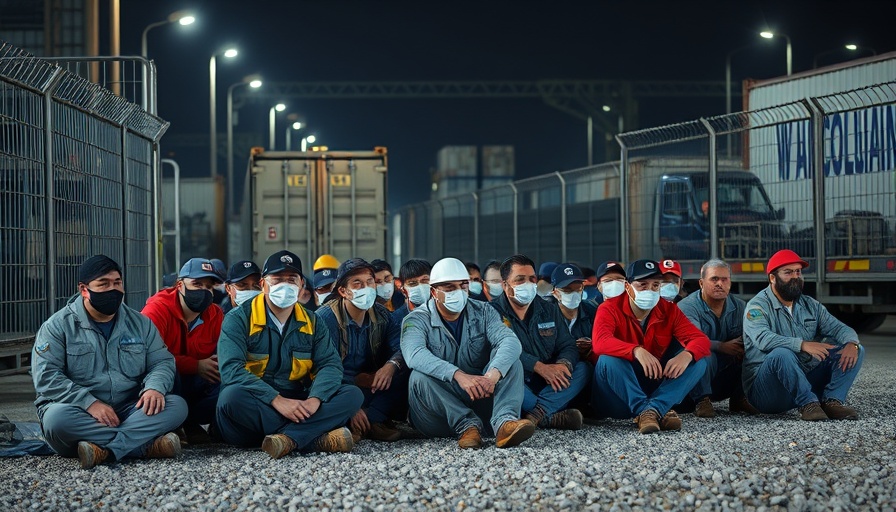
Donald Trump's Continued Focus on Human Rights in Supply Chains
In light of recent global discussions surrounding sustainable practices and corporate accountability, it's crucial for Asian companies to understand that the U.S. market will remain vigilant in addressing human rights abuses despite shifts in political rhetoric. Former President Donald Trump, known for his controversial statements against environmental, social, and governance (ESG) principles, has previously made significant moves to combat forced labor in supply chains—a focus that may not be going away anytime soon.
Understanding the Misconception Around Anti-ESG Rhetoric
Many companies in the Asia Pacific region might feel emboldened by Trump's anti-ESG and anti-woke sentiments, mistakenly thinking that these attitudes translate into relaxed enforcement of human rights laws. This perception is misleading. While his administration may have critiqued global human rights reports, the legal framework designed to protect against forced labor remains intact. For example, the expansion of Withhold Release Orders (WROs) under Trump's previous term aimed to block imports tied to forced labor, demonstrating that U.S. authorities continue to take these issues seriously.
Lessons from Trump's First Term: Actions Speak Louder Than Words
During his first administration, significant actions were implemented against forced labor practices. The U.S. Customs and Border Protection agency intensified enforcement of the Tariff Act, which prohibits imports manufactured wholly or partially by forced labor—including exploitative practices involving children. Notably, Asian companies such as Malaysia's Top Glove faced scrutiny and bans due to violations related to forced labor practices within their operations.
Future Implications: What Asian Companies Can Do
As we look to the future, Asian companies engaged in global supply chains must prioritize compliance with ethical practices and due diligence. Investors and businesses alike need to ramp up their investigations into labor practices to avoid severe repercussions, including potential bans from lucrative markets. The focus should not just be on compliance but also on fostering sustainable practices, which are becoming increasingly important to consumers.
The Broader Impact of Climate Change and Sustainability
Addressing forced labor is just one component of a greater narrative that includes climate change and sustainable living. Companies that are proactive in developing eco-friendly products, embracing renewable energy, and adhering to fair trade principles may find themselves at a significant advantage as consumer awareness and demand shift. In this evolving landscape, companies should consider implementing sustainable practices that reflect their commitment to social responsibility.
The Call for Awareness: A Responsibility for All
The importance of this conversation cannot be overstated. By recognizing the intertwining of human rights and environmental issues, companies can cultivate an ethical approach that resonates with consumers who are increasingly focused on sustainability. For those in the business sector, it becomes vital to embark on a journey of responsible consumption and ethical sourcing.
Conclusion: Embrace the Change for a Sustainable Future
In a world where consumer preferences are rapidly changing, Asian companies must take note of the lessons from past administrations like Trump’s, ensuring that their supply chains are free from forced labor, while also committing to environmentally conscious practices. By embracing ethical production and making strides toward a sustainable future, businesses can thrive in an increasingly competitive market. It's time to act now, focus on responsible practices, and champion the principles of sustainable development.
 Add Row
Add Row  Add
Add 



Write A Comment